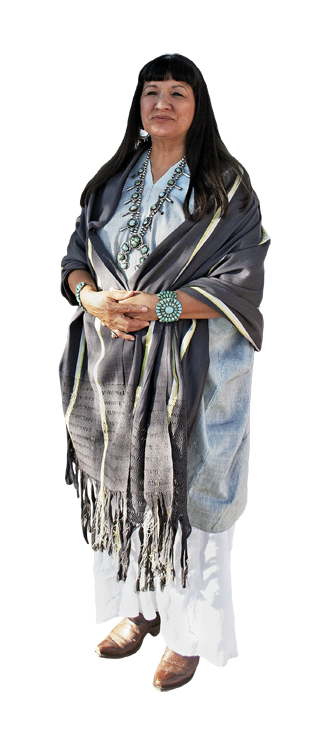Twenty-five years ago author Sandra Cisneros founded the Macondo Writers Workshop when she invited eight people to convene in the kitchen of her San Antonio, Texas, home. Today the event gathers writers of varying genres and backgrounds every summer for a weeklong master’s-level workshop at Texas A&M and boasts an active community of more than two hundred alumni Macondistas. (This year’s deadline for applications is February 23.) Named after the town in Gabriel García Márquez’s One Hundred Years of Solitude, Macondo holds as its mission “to inspire and challenge one another in order to incite change in our respective communities.” The recipient of two National Endowment for the Arts fellowships and a MacArthur “Genius” Fellowship, Cisneros exemplifies that mission with her work as an activist, teacher, and writer. Her classic coming-of-age novel, The House on Mango Street, has sold more than six million copies since it was published by Arte Público Press in 1984. She recently spoke about Macondo’s origins and impact.

Sandra Cisneros (Credit: Patri Hadad)
Why did you start Macondo?
When I was teaching at UC Berkeley as a guest writer, there was one day when I wanted to cut class. I realized I was the teacher and that was not a good sign. I asked myself why, and I realized my students were not there because they wanted to be there. I felt happier when working with community people. I didn’t belong in academia. I remember saying to myself, “One day when I can afford to I will teach a class and no one can enroll just because they have the money. It will be that I select them. It will be my team of writer activists.” Then the Guadalupe Cultural Arts Center in San Antonio, where I had taught, asked if I would be a guest writer, and I said only if I could pick the class members. That workshop was the seedling.
What are you most proud of achieving with Macondo during the past twenty-five years?
When I came to the Guadalupe Cultural Arts Center in 1984, I dreamed of having a full house, standing room only, of people coming to listen to a writer. My highest moment was when we did a show with Jump-Start Performance Co. called “Light in the Time of Darkness.” That night I dressed as Luz, the good witch of the Southwest, and Helena Viramontes read about bodies being carried out after the 1985 earthquake—you could hear a pin drop. I felt like I had done it! I’m also really proud of the compassionate code of conduct that the members created: checking our egos at the door, recognizing the divine spark within others. I remember María Limón teaching us the social-activist hokey pokey. You take the hate out, you put the love in….
What makes Macondo different from other writing workshops?
Macondo is open to anyone as long as they are an activist. I have never been Latino-centric. In Macondo we have people from China, Pakistan, and, yes, we have Latinos—all colors and all classes. All-inclusive. Previously I invited the participants, but now there is an application process. And let me tell you, people at Macondo have lived lives. They have stories to tell.
What role does Macondo play in the larger arts culture and current political environment?
This is the time for Macondo. We need to have a collective of writers doing human work when the community is so divided. The work of generosity and compassion and community building and nonviolent work is the work that Macondo writers do. Even though our members are all different ages, Macondo writers have a faith that writing can change the world. It’s a reality. We know. Because art changed our lives.
What is your vision for the future of the workshop?
I hope Macondo will continue to work as a collective. Keep that sense of selflessness and generosity. When Macondo members publish their books, I feel like a grandma. I do.
What is ahead for you?
I have a lot of projects I’m working on right now, including an opera and a book of interviews with undocumented people that I will turn into a script. I feel like my best work is ahead of me. I’m very blessed that I feel so much magnificence in my life. So, yeah, I want to be a writer when I grow up.
Jennifer De Leon is the author of the novel Don’t Ask Me Where I’m From (Atheneum/Caitlyn Dlouhy Books, 2020). Visit her at jenniferdeleonauthor.com.








